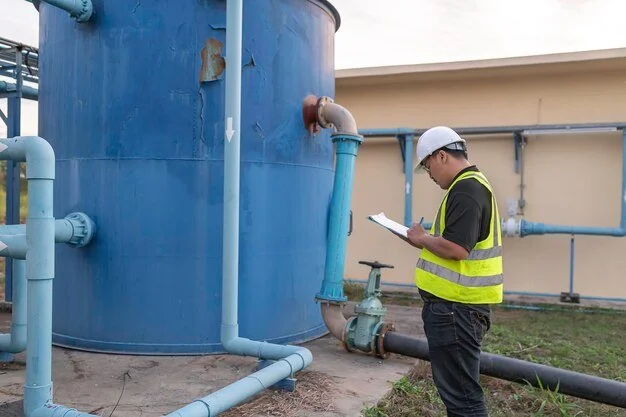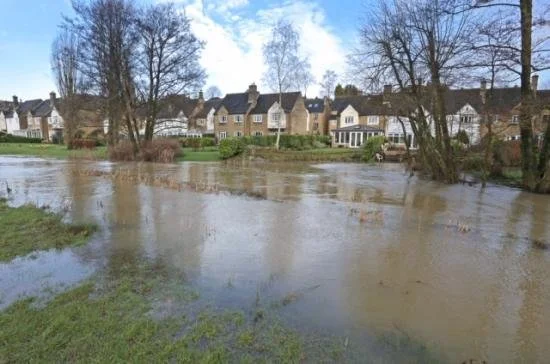The short answer is to immediately contact a licensed plumber with experience in handling groundwater flooding issues. A professional plumber will have the expertise and equipment necessary to assess the situation, identify the root cause of the flooding, and implement effective solutions to prevent further damage. It's crucial to act swiftly to minimize water damage and ensure the safety of your property.
Expert Help for Groundwater Flooding - Act Fast!
When faced with groundwater flooding, time is of the essence. It's crucial to act swiftly and decisively to minimize damage and prevent further issues. In such emergencies, seeking expert help from a professional plumbing service can make all the difference in effectively addressing the situation. These professionals have the knowledge, experience, and tools necessary to assess the extent of the flooding, identify underlying causes, and implement appropriate solutions tailored to your specific needs.
Professional Assessment of Water Damage
When assessing water damage, it is crucial to understand the extent of the issue. Professional plumbers can use specialized tools such as moisture meters and thermal imaging cameras to determine the full scope of water infiltration within your property.
The presence of groundwater flooding can lead to serious structural issues if not addressed promptly. It is essential to have a professional assessment conducted to identify potential risks and develop an effective mitigation plan tailored to your specific situation.
The Pros & Cons of Groundwater Flooding Solutions
Pros
1. Effective in preventing property damage
2. Can help reduce the risk of mold growth
3. Provides a long-term solution to groundwater flooding
4. Protects the structural integrity of buildings
5. Helps maintain the value of the property
Cons
1. Installation can be costly
2. Requires professional expertise for proper implementation
3. May disrupt landscaping and outdoor aesthetics
4. Ongoing maintenance may be necessary
5. Not always feasible for all properties
Identifying the Root Cause of Flooding
Identifying the root cause of flooding in your home is crucial to effectively addressing the issue. Common causes include heavy rainfall, poor drainage systems, clogged gutters, or foundation cracks. By inspecting these areas thoroughly, you can pinpoint the source of the problem and take appropriate action.
It's essential to check for any leaks in your plumbing system as they can contribute to indoor flooding. Inspect pipes under sinks, around toilets, and behind appliances regularly for signs of water damage or moisture buildup. Addressing any leaks promptly can prevent extensive water damage and mold growth within your home.
Another common culprit of flooding is a malfunctioning sump pump. Ensure that your sump pump is in good working condition by testing it regularly and keeping up with maintenance tasks. A failing sump pump can leave your basement vulnerable to groundwater seepage during heavy rains.
In some cases, landscaping issues such as improper grading around the foundation of your home can lead to groundwater pooling near walls and causing leakage into basements or crawl spaces. Correcting these grading problems by sloping soil away from the house can help mitigate future flooding risks significantly.
Preventive Measures and Solutions
When it comes to preventing groundwater flooding, maintaining a functional sump pump is crucial. Regularly inspecting and testing your sump pump ensures that it will effectively remove water buildup in case of heavy rainfall or rising groundwater levels. Additionally, installing a battery backup for your sump pump can provide extra protection during power outages, ensuring continuous operation when you need it the most.
Another important preventive measure is to properly seal any cracks or gaps in your foundation walls and basement floors. By addressing these openings promptly, you can prevent water seepage into your home during periods of heavy rain or high water tables. Moreover, considering the installation of a backwater valve on your sewer line can help prevent sewage backups into your basement during times of intense rainfall or flooding.
Specialized Equipment for Mitigation
When dealing with groundwater flooding, having access to specialized equipment for mitigation is crucial. High-capacity pumps are essential for efficiently removing large volumes of water from affected areas. These pumps can significantly speed up the process of water extraction, helping to prevent further damage to the property. Additionally, moisture meters play a vital role in assessing the extent of water intrusion and monitoring the drying progress accurately.
Dehumidifiers are another key piece of equipment that aids in reducing humidity levels and accelerating the drying process after groundwater flooding. By extracting excess moisture from the air, dehumidifiers help prevent mold growth and secondary water damage within structures. Furthermore, industrial-grade air movers are instrumental in promoting airflow and ventilation throughout damp spaces, facilitating rapid evaporation of remaining moisture content.
Restoration Services for Property
Restoration services for property encompass a wide range of specialized solutions tailored to address the aftermath of various disasters, such as fire, water damage, mold infestations, and more. These services are crucial in restoring properties to their pre-loss condition efficiently and effectively. Professional restoration companies utilize advanced techniques and equipment to mitigate damages, remove contaminants, deodorize spaces, and ensure structural integrity is restored.
Timely intervention by restoration experts can significantly minimize further damage caused by unforeseen events like floods or fires. By swiftly initiating the restoration process after an incident occurs, property owners can prevent secondary issues like mold growth or structural deterioration. Restoration specialists not only focus on repairing visible damages but also conduct thorough assessments to identify hidden problems that could lead to long-term complications if left unaddressed.
Navigating Insurance Coverage
When dealing with groundwater flooding issues, understanding your insurance coverage is crucial. Homeowner's insurance typically doesn't cover flood damage caused by rising water levels from the ground. However, it may cover some water damage resulting from leaky pipes or plumbing issues within the home. To ensure you are adequately protected, consider purchasing a separate flood insurance policy to safeguard your property against groundwater flooding.
DIY Tips for Immediate Action
When faced with groundwater flooding, it's crucial to act swiftly. Start by locating the source of the water and shutting it off if possible. Then, prioritize safety by turning off electricity to avoid any risk of electric shock. Remember to wear protective gear like rubber boots and gloves before entering flooded areas.
Once you've ensured your safety, begin removing excess water using a wet-dry vacuum or pump. You can also speed up the drying process by opening windows and using fans to improve ventilation. It's essential to remove any affected carpets or furniture from the area as soon as possible to prevent further damage and mold growth.
Inspect walls for water damage and consider cutting away wet drywall to facilitate airflow and prevent mold infestation behind the walls. Clean all surfaces thoroughly with disinfectants after drying out the area completely, paying special attention to hidden nooks where moisture may linger.
Post-flooding Maintenance Tips
After experiencing flooding, it is crucial to prioritize safety when re-entering your property. Ensure the electricity is turned off before entering any flooded areas to prevent the risk of electric shock. Additionally, wear appropriate protective gear such as rubber boots and gloves to minimize exposure to contaminated water that may contain harmful bacteria or chemicals.
Once you have safely re-entered your home post-flooding, start by removing any standing water using pumps or wet vacuums. Thoroughly dry out affected areas by opening windows, using fans, and dehumidifiers to prevent mold growth. Discard any items that cannot be salvaged due to extensive water damage and sanitize surfaces with a mixture of bleach and water.
Ensuring Safety and Property Protection
When faced with groundwater flooding, ensuring safety and protecting your property are paramount. To safeguard yourself and your home, it's crucial to prioritize personal safety by avoiding contact with the flooded area if there is a risk of electric shock. Turn off the main power supply to prevent any electrical accidents in water-damaged areas. Additionally, be cautious when walking through flooded spaces as unseen hazards may lurk beneath the surface.
To protect your property from further damage caused by groundwater flooding, consider contacting a professional plumber immediately for assistance. A skilled plumber can evaluate the extent of the water damage and provide expert guidance on mitigating risks to your plumbing system and overall property structure. By addressing plumbing issues promptly, you can minimize potential long-term effects such as mold growth or structural deterioration due to prolonged exposure to excess moisture.
FAQ
What should I do if my basement is flooding due to groundwater seepage?
If your basement is flooding due to groundwater seepage, it is crucial to contact a professional plumber immediately to assess the situation and implement necessary measures to prevent further damage.
How can I prevent groundwater flooding in my home?
To prevent groundwater flooding in your home, ensure proper sealing of foundation cracks, install a sump pump, and maintain clear gutters and downspouts.
Is it safe to attempt DIY solutions for groundwater flooding, or should I call a professional immediately?
It is generally safer to call a professional immediately for groundwater flooding issues to ensure proper assessment and effective resolution.
What are the potential long-term consequences of ignoring groundwater flooding issues?
Ignoring groundwater flooding issues can lead to structural damage to buildings, mold growth, and contamination of drinking water sources.
Are there any warning signs that indicate an impending groundwater flooding situation?
Yes, warning signs of impending groundwater flooding include water pooling around the foundation, damp or musty odors in the basement, and sudden increases in water bills.
How can a plumbing expert help mitigate the effects of groundwater flooding on my property?
A plumbing expert can help mitigate the effects of groundwater flooding on your property by assessing the situation, implementing proper drainage solutions, and repairing any damaged pipes or fixtures to prevent further water intrusion.










